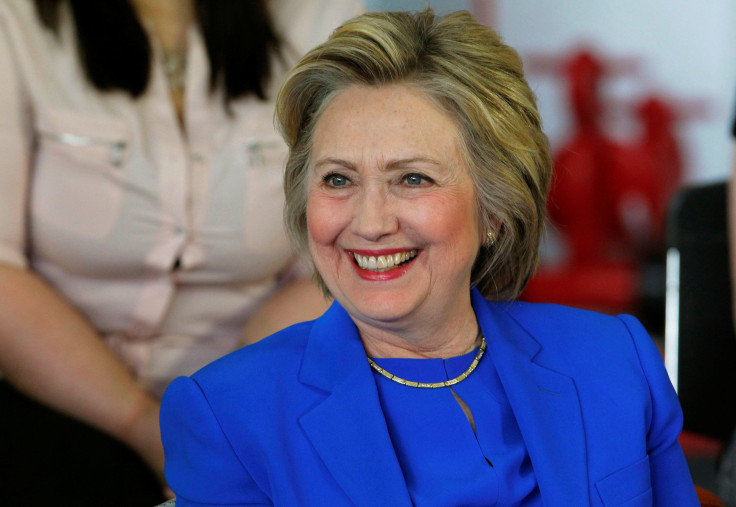Can Bernie Sanders Still Win? For Democrats, Contested Convention Unlikely To Turn Superdelegates Against Hillary Clinton

It's too late for Bernie Sanders to become the Democratic nominee simply by besting Hillary Clinton at the ballot box, but his latest plan to take her on at the Democratic convention in Philadelphia could also prove to be a dead end despite recent wins in Indiana and West Virginia.
The Vermont senator has increasingly urged superdelegates — Democratic officeholders and party leaders who are not bound to a candidate — to turn against Clinton and back his campaign. Sanders said neither he nor Clinton will get the majority delegates needed to win the nomination outright, so it's appropriate to have superdelegates evaluate who voters really want on the ballot in November and who is best positioned to take on Donald Trump, the presumptive Republican nominee, in the general election.
The former secretary of state "will need superdelegates to take her over the top at the convention in Philadelphia. In other words, it will be a contested convention," Sanders said earlier this month at the National Press Club in Washington.
Sanders is basing his argument on how states award delegates and superdelegates, which often does not reflect the popular vote. At this point, Clinton has 1,645 elected delegates and 520 superdelegates, while Sanders has 1,318 and 39.
"In the state of Washington, we won that caucus with almost 73 percent of the vote there — 73 percent of the vote. In anybody's opinion, that is a massive landslide. But at this point Secretary Clinton has 10 superdelegates from the state of Washington, we have zero," Sanders has said. "I would ask the superdelegates from the state of Washington to respect the wishes from the people in their state and the votes they have cast."
But even if every superdelegate backed the winner of his or her state, Sanders still can’t win enough to nab the nomination. Only 15 percent of all of the Democratic delegates are supers. A candidate needs 2,383 delegates to win, and if Clinton keeps up her current level of support, she could win a majority of the pledged delegates by June 7. To tilt the scales, Sanders would need to win 70 percent of the vote in the remaining contests, a high bar that far exceeds how he has performed so far.
Sanders' campaign already seems to be sagging. He raised over $25 million in April, a steep drop from his March numbers, and the campaign recently let go of a large number of staffers in states that have voted.
Superdelegates could technically flock to his campaign if he starts to win more states. The delegate-rich states of California and New Jersey will vote in June, and superdelegates are free to back any candidate at the convention regardless of the popular vote. But in the past superdelegates have largely gone for the candidate who has received the most pledged delegates, and that's Clinton, not Sanders.
This system has meant that candidates have often fallen in line in the past and avoided a contested convention. In 2008, when Clinton was much closer to blocking Barack Obama from the nomination compared to Sanders' delegate total this year, she didn't contest the convention. Obama, who also couldn't win without superdelegates, became the nominee and went on to win in November and again in 2012.
"Clinton realized the damage that could be done to the party — and perhaps herself — so she didn't," the Washington Post noted of her decision not to push for a contested convention then. "Sanders doesn't share the former sentiment, as he has made clear. He was an independent until he decided to run for president, and his goal during his campaign has been to upend the system, into which a convention floor fight fits neatly."
It's true that polls show Sanders is the best candidate right now to beat Trump in important swing states. A recent NBC News/SurveyMonkey Weekly Election Tracking Poll found voters would go for Sanders over Trump by 13 points. Clinton would also beat Trump, but by a much smaller margin of 49 percent to 44 percent. The poll of 12,714 adults, including 11,089 registered voters, was conducted online from May 2 through May 8.
But it's still very early in the 2016 race, and voters could warm to Clinton, especially if Trump continues to make his standard polarizing remarks about women and minorities.
"These early general-election polls are early general-election polls. How early? Well, we’re not even in the general election yet. That early. These polls will be more revealing in a month or so once the primaries on both sides are completed and the hangover of primary politics wears off," Slate wrote Tuesday.
If it somehow all works out for the Vermont senator, Sanders wouldn't be the first president to emerge from a convention fight. Some of the most influential 20th century presidents, including Democrats Woodrow Wilson and Franklin Delano Roosevelt and Republican Dwight Eisenhower, were elected after being nominated at contested conventions.
© Copyright IBTimes 2024. All rights reserved.






















